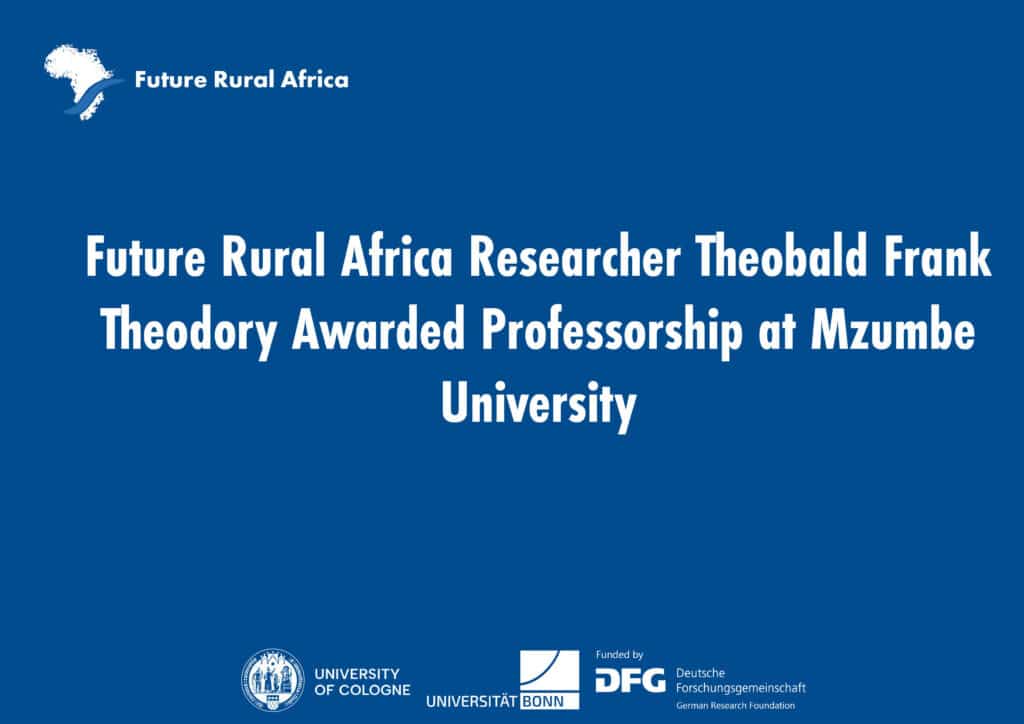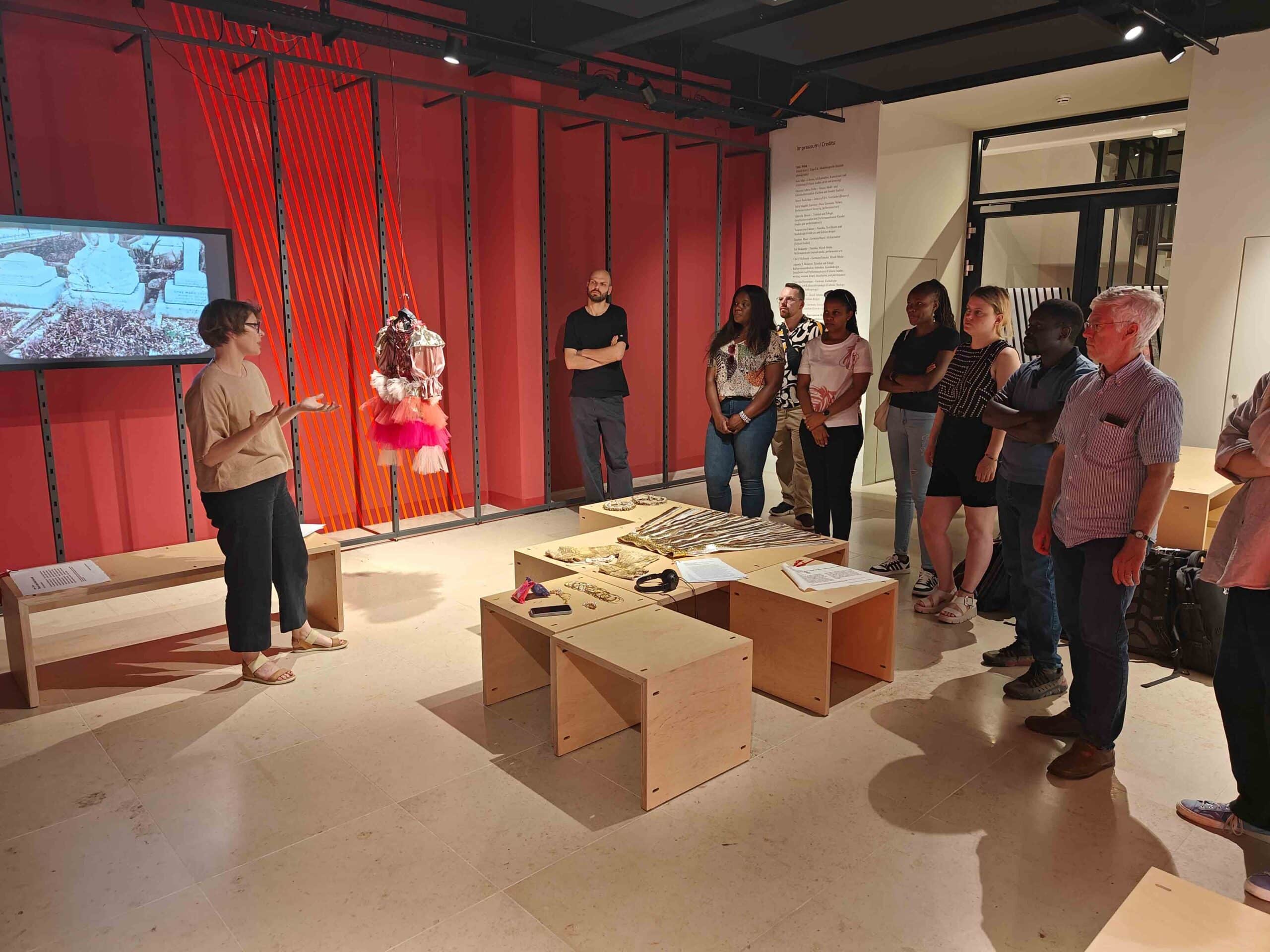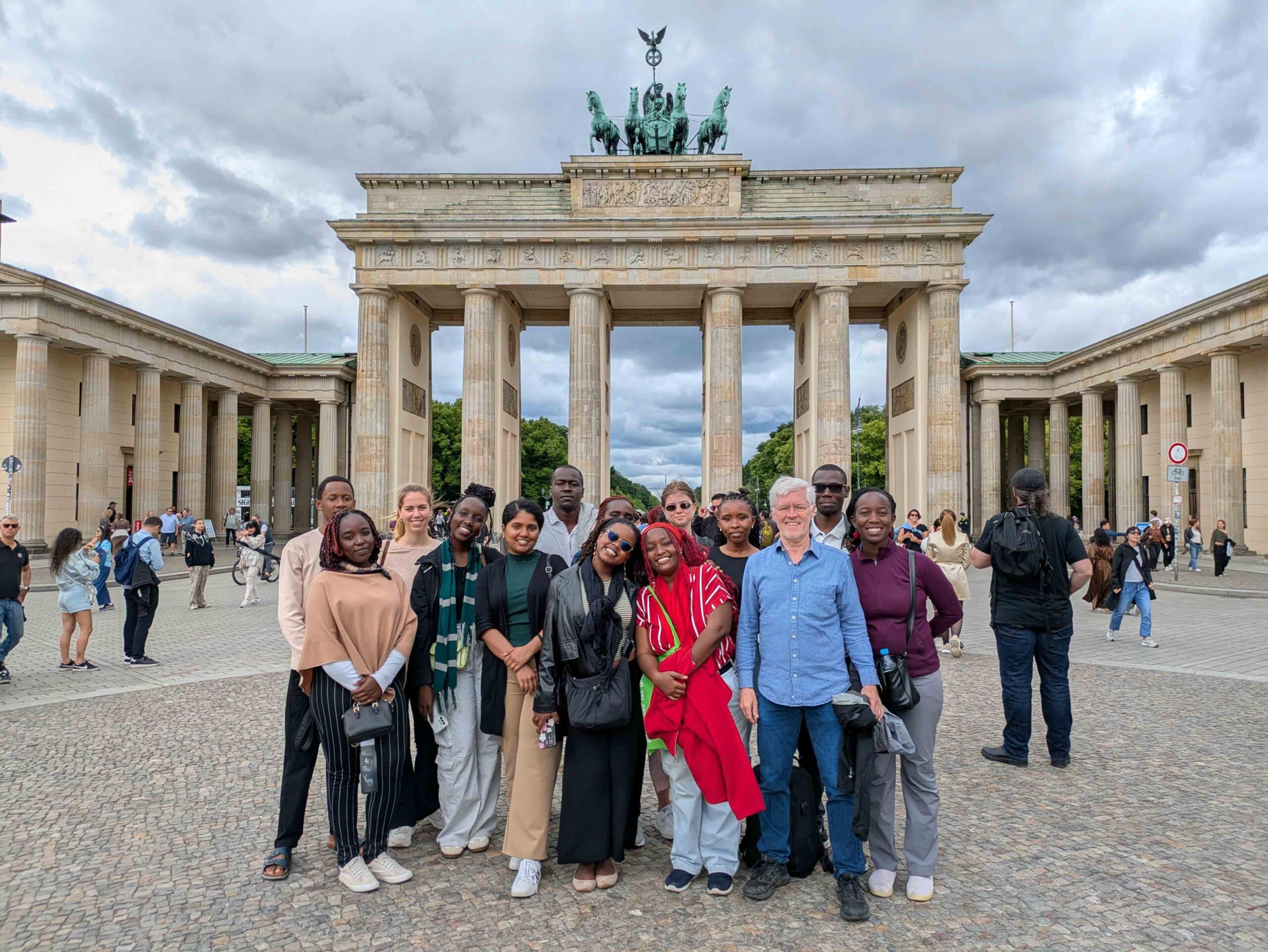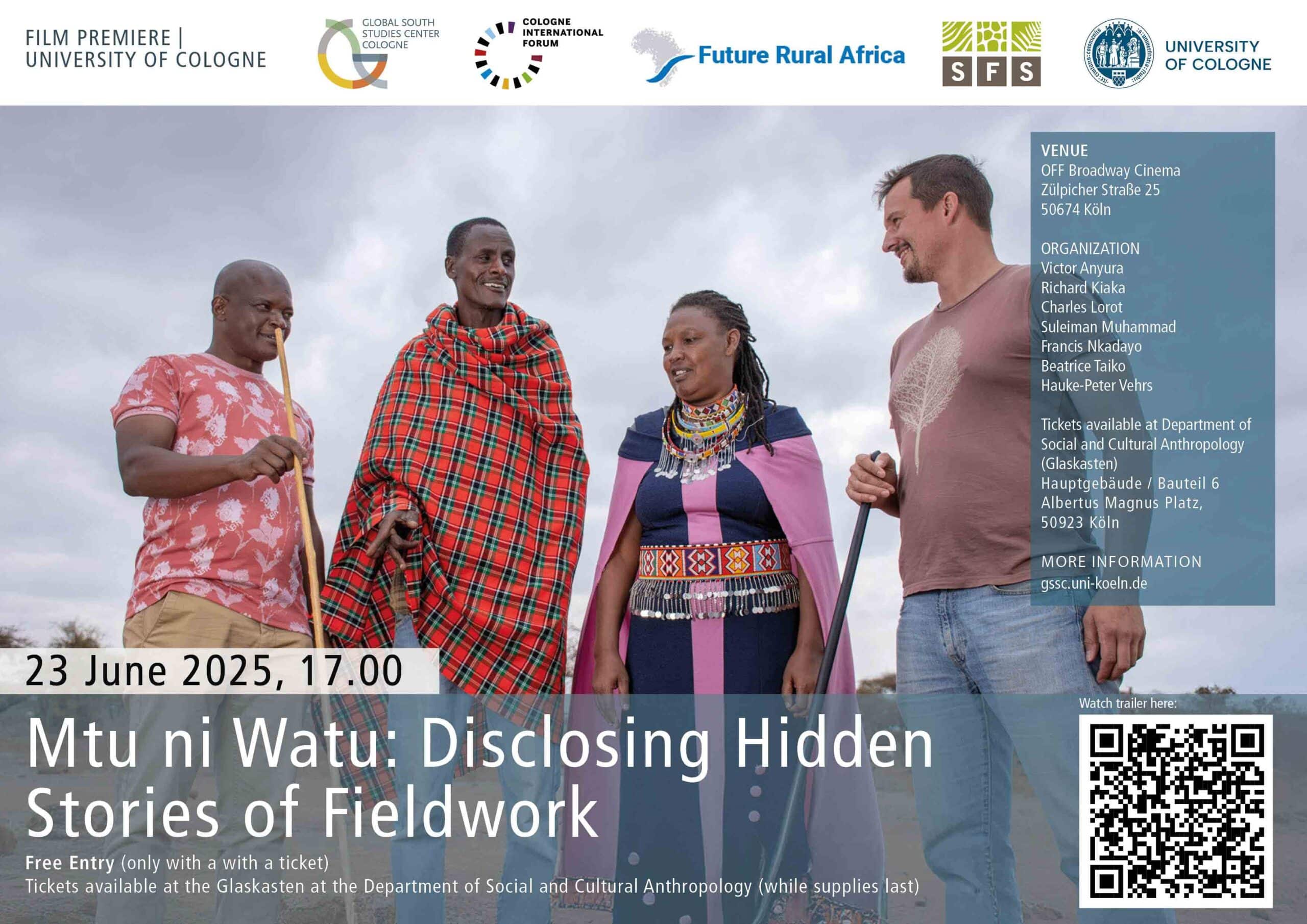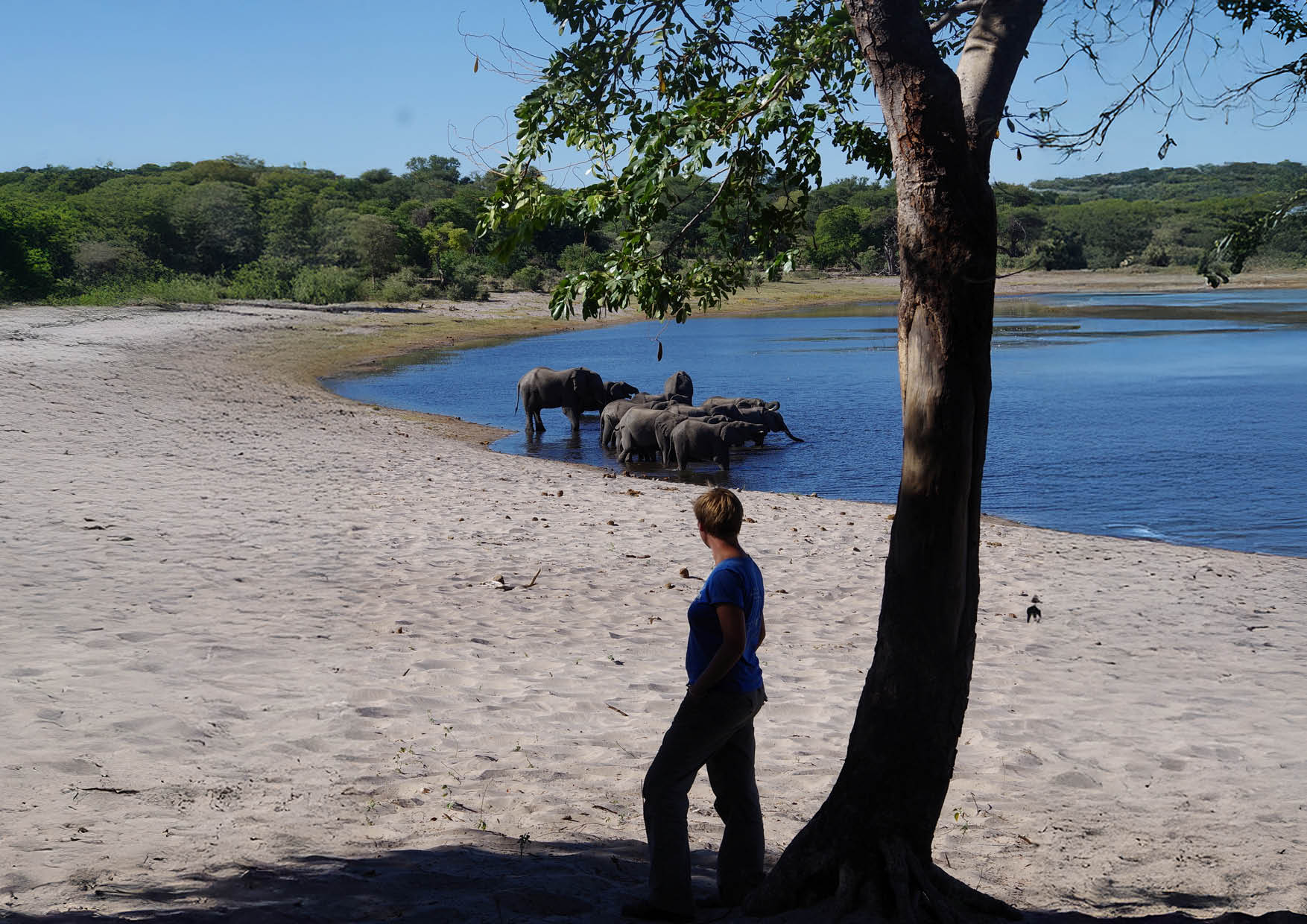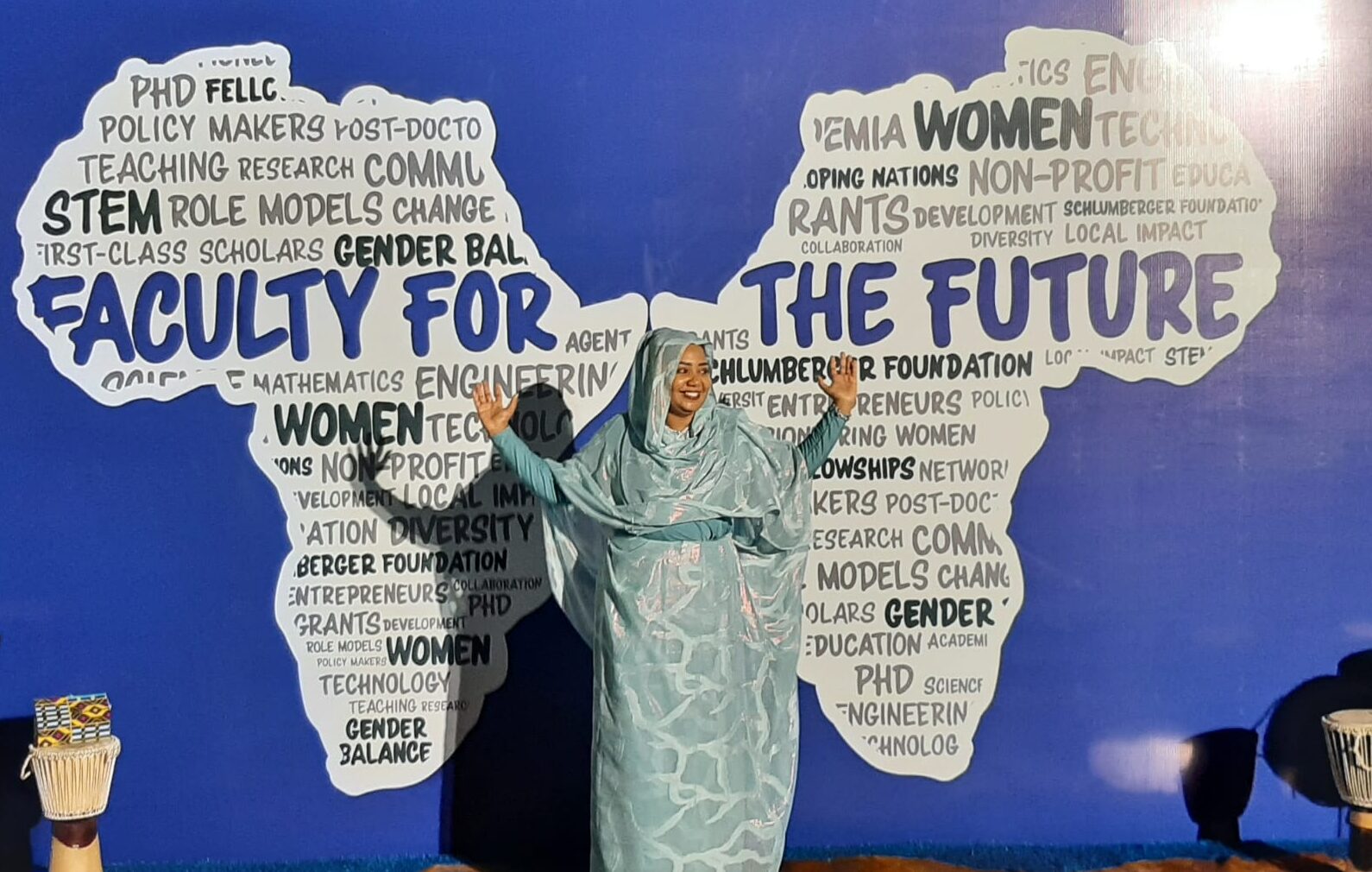Prof. Theobald Frank Theodory has been involved with the Collaborative Research Centre (CRC-TRR) Future Rural Africa since before its official launch in 2018. After attaining his PhD from the Department of Geography at the University of Bonn, Theodory has recently been promoted to “Assistant Professor” at Mzumbe University in Tanzania, making him one of, if not the youngest Professor in the country. We met with Prof. Theodory and discussed his research, his role in the Collaborative Research Centre Future Rural Africa and his plans and goals for the future.
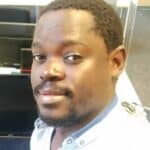
Could you briefly introduce yourself and your area of work?
My Name is Theobald Frank Theodory I am an associate Professor at the Institute of Development Studies at Mzumbe University. I did my PhD at the University of Bonn from 2013 to 2016 at the Institute of Geography. My supervisor was Prof. Detlef Müller-Mahn[1]. After completing my PhD, I headed back to Tanzania to work as a lecturer. During my PhD, I was part of implementing a partnership between my current university and the University of Bonn. Since then we have been collaborating in various ways, such as a joint field course organized together with Prof. Detlef Müller-Mahn for German students and students from Mzumbe University.
In what ways have you been involved in the Collaborative Research Centre Future Rural Africa?
I have been involved with the Collaborative Research Centre Future Rural Africa since well before its inception, when it was still a brain child and an idea. Back then, researchers from the Universities of Bonn and Cologne used to meet and brainstorm about the idea and outlook of a Collaborative Research Centre. I was involved in the preparation of the initial project proposal, gathering information on large scale farming and land investment in Tanzania.
After the CRC’s project proposal was accepted, I became the first country coordinator for Tanzania, where it was my task to facilitate the smooth implementation of the project. All researchers who came to Tanzania were assisted by myself to make sure they get their research permits in time and were properly introduced to their research regions.
In the proposal of the second project phase (2022- 2025) I was closely involved, especially in my Project C03 Green Futures. However I am also a team member of Project B05 Science Futures, which is led by Prof. Anna-Katharina Hornidge, the director of the German Institute for Development and Sustainability (IDOS) institute.
You are a team member in two of our subproject, namely C03 Green Futures and B05 Science Futures. What are you particularly working on in those two projects?
I am a scientific partner in the Green Futures Project. One of my tasks is to supervise our masters students. In the first phase we had one master student who successfully defended her master thesis through the funding of the project. I also did research and published an article on the framing of forest futures which has been published in the African Journal for Sustainable Economic Management.
I supported the elaboration of the proposal of project C03 for the second funding phase with its new focus on dams and dam development projects in Tanzania. Also, I was closely involved in brainstorming the topic and the research questions for the second phase proposal.
For subproject B05 Science Futures I am also a scientific partner. My key responsibility here is the supervision of our master student. I was responsible for identifying and supervising a master students. As we are talking now, this student has already successfully finished his master’s programme and defended his masters’ thesis. Me and the other researchers in the subproject are now working on publications that are based around some of the research carried out in this master thesis. I have also been facilitating the field work for the researchers in the B05 project.
What are your future plans and goals as a professor and researcher?
Apart from being involved in the Collaborative Research Centre Future Rural Africa as a researcher I am involved in a joint Erasmus mobility programme together with the Institute of Geography at the University of Bonn. This programme had originally been founded for the time from 2020 to 2023 but unfortunately due to the COVID 19 pandemic we could not start in 2020. We had to postpone the start of the project until after the pandemic. We focus on student mobility and teaching mobility. We have recently been approved for a second phase in that project and are currently expecting students and teaching staff from Bonn and Mzumbe University to visit each other. The first group will be coming to Bonn in March 2024. The vice chancellor of Mzumbe University will also come to Bonn via our project, to further cooperation between the two universities.
Also, I have another project with the University of Ghent and the University of Antwerp that I joined in 2016 called Vliruos. I am a scientific partner and researcher and we are working on engaging the community in monitoring water quality and water availability around different villages in rural Tanzania.
Recently, I won a very big grant funded by the Danish government for a five year project with four PhD students and six master students funded. We have just started to implement the project six months ago. So, these are some of the big projects that I am involved. I am also part of various smaller projects funded by the government of Tanzania.
However, The CRC-TRR Future Rural Africa is on top of my priorities as we are currently working on publications within the sub projects. Last year we spent quite some time researching in the field. This year we are more focused on writing. We also have to start working on the proposal for the third phase of the CRC. Today I was working mostly on a paper that I am writing together with Detlef (Müller-Mahn).
What inspired you to pursue a career in science and academia?
When I did my Bachelor’s at the University of Dar es Salaam I did not have the dream to be a scholar. I developed that interest during my Master’s studies. The programme involved reading many scientific publications and that is when I developed an interest in becoming a scholar. After completing my Master’s in 2009 I decided to pursue research and started working with Mzumbe University in 2010.
I started looking for a PhD scholarship. During that time there was an agreement between the German government and Tanzanian government regarding capacity building in higher education and so I applied and one of the conditions was that a German professor would be your supervisor. Now the task was to search for a German professor who would be ready to accept me as a PhD student. I wrote several emails and was lucky to come into contact with Detlef (Müller-Mahn). He accepted me and wrote a recommendation letter to DAAD (German Academic Exchange Service). I finalized my application and was eventually awarded a PhD scholarship to study in Germany. By then Detlef was not at the University of Bonn, he was at the University of Bayreuth. While I was attending a German language course at the Goethe Institute in Mannheim, Detlef accepted a professorship at the University of Bonn and we both started there together in March 2013.
What advice do you have for young individuals aspiring to pursue a career in science and academia?
My advice would be that the most important aspects are commitment, hard work and discipline. Discipline off course is a broad concept. I would like to focus on the discipline of time. In academia you need to be focused. If you want to be a good scholar you need to focus on research. In academia however, you can also do other things, such as teaching or consulting. If you want to be a scholar, forget about teaching, forget about consulting. Nothing can be achieved in scholarship if you are not doing research. I would advise young scholars to remain focused. You have to immerse yourself in research and keep writing proposals and eventually your failures will become successes.
You have recently been promoted to professor at our partner institution, Mzumbe University. You are one of, if not the youngest professor in Tanzania. Congratulations!
At 42 years of age, I am among the youngest professors for sure. In Germany people become professors at a young age. In Tanzania, the majority receives a professorship well into their fifties. The process is very complicated and involves a lot of politics. I don’t know for sure if I am the youngest professor in Tanzania but I am for sure among the youngest maybe two or three professors in Tanzania. And the youngest at my University.
[1] Prof. Müller-Mahn is a researcher in CRC-TRR Project C03 Green Futures and was the speaker of the Collaborative Research Centre Future Rural Africa during its first funding phase (2018-2022).

